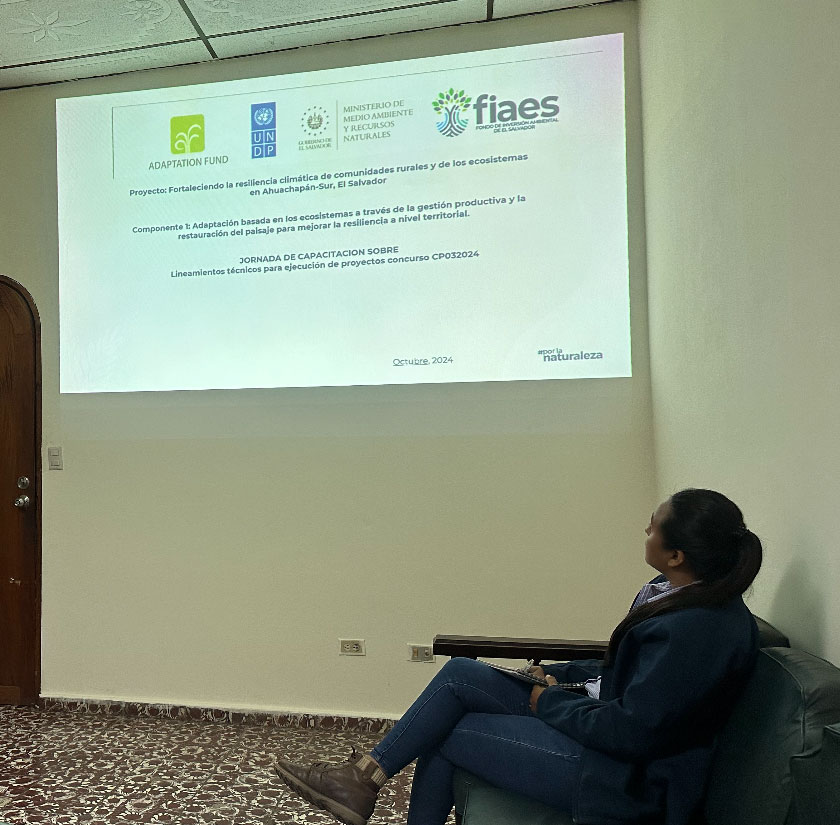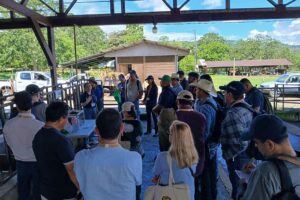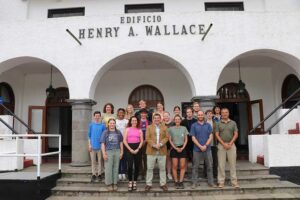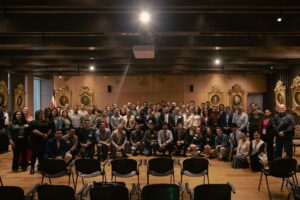FIAES and ESCALAR Promote Silvopastoral Systems for Sustainable Livestock Farming in El Salvador

- The initiative, funded by the Adaptation Fund and UNDP, aims to transform 414 hectares into silvopastoral systems in the San Francisco Menéndez district, benefiting more than 350 families.
On October 18, the project "Promotion of sustainable and climate-resilient agriculture in critical ecosystems through the establishment of 414 hectares" was launched in the San Francisco Menéndez district, Ahuachapán department, El Salvador.
"Promotion of sustainable and climate-resilient agriculture in critical ecosystems through the establishment of 414 hectares" was launched in the San Francisco Menéndez district, Ahuachapán department, El Salvador.
This initiative is financed by the Adaptation Fund through the United Nations Development Programme (UNDP) as the development partner. The implementing partners are the Ministry of Environment and Natural Resources (MARN) and the Environmental Investment Fund of El Salvador (FIAES).
Additionally, the executing partner is the ESCALAR project: Scaling climate adaptation solutions for resilience and migration reduction in the Central American Dry Corridor, led by CATIE (Tropical Agricultural Research and Higher Education Center).
With a duration of 22 months, from October 2024 to July 2026, the initiative seeks to implement a sustainable production system in the communities of Sacramento, Cara Sucia, La Hachadura, El Zapote, and Garita Palmera, establishing 414 hectares of silvopastoral systems alongside local producers.
The project will directly benefit 350 families and 500 individuals identified in these communities through the Community Restoration Plans (CRP). These CRPs are strategic documents developed by the communities themselves, designed to guide the restoration and conservation of degraded ecosystems in the region.
As part of these plans, 72,450 forest plants and 24,840 grafted fruit plants will be planted on the beneficiaries' farms, transforming grazing areas into silvopastoral systems for livestock production. This integration of trees and shrubs enhances both the productivity and quality of forage while also providing benefits such as reducing soil erosion and increasing biodiversity. The trees also provide shade and shelter, contributing to animal welfare and resilience to climate stress.
In addition to environmental benefits, silvopastoral systems enable families to diversify their income through timber and fruit products, thus improving economic profitability. This production model promotes responsible practices and strengthens community resilience to climate change.
“With this innovative approach, the project led by FIAES and CATIE ESCALAR not only promotes sustainability in local livestock farming but also represents an integrated development model that combines ecosystem restoration with social and economic well-being, actively involving communities in planning and executing these initiatives,” said Alejandro Cuellar, Field Coordinator for the Project.
More information:
Favio Duarte
Adaptation Measures Specialist
favio.duarte@catie.ac.cr
Written by:
Patricia Orantes
Development Communication Specialist
ESCALAR Project
CATIE
patricia.orantes@catie.ac.cr



